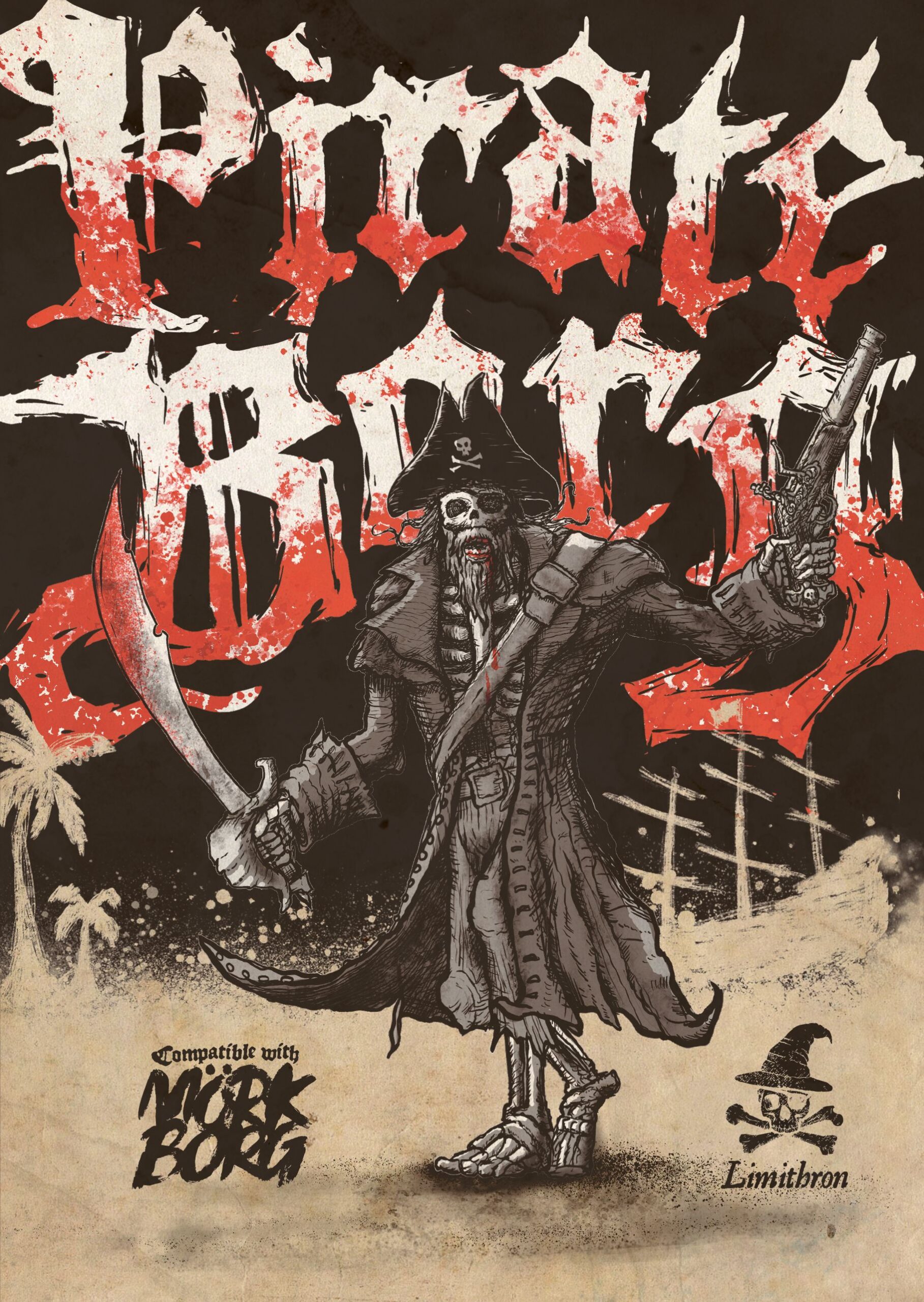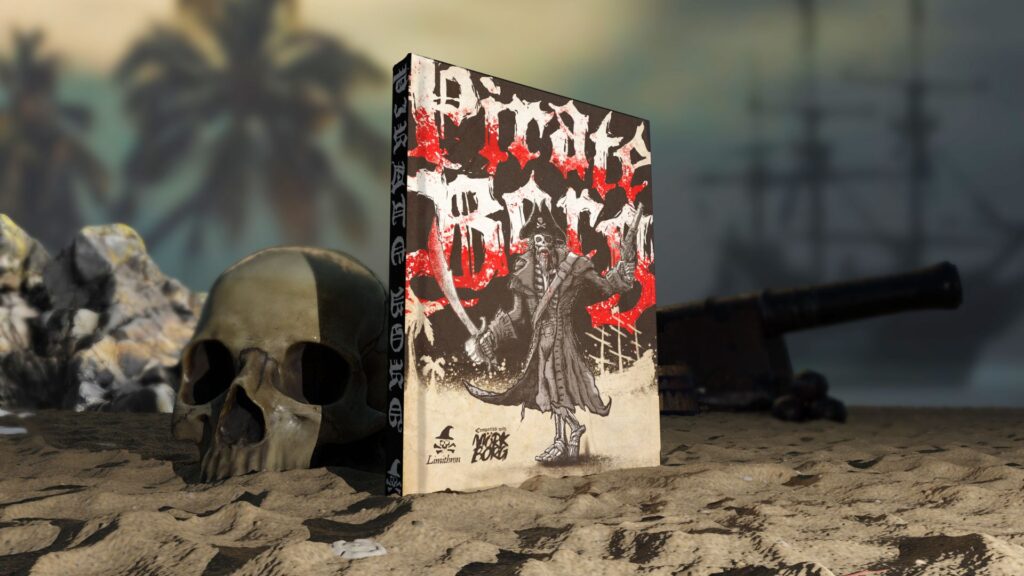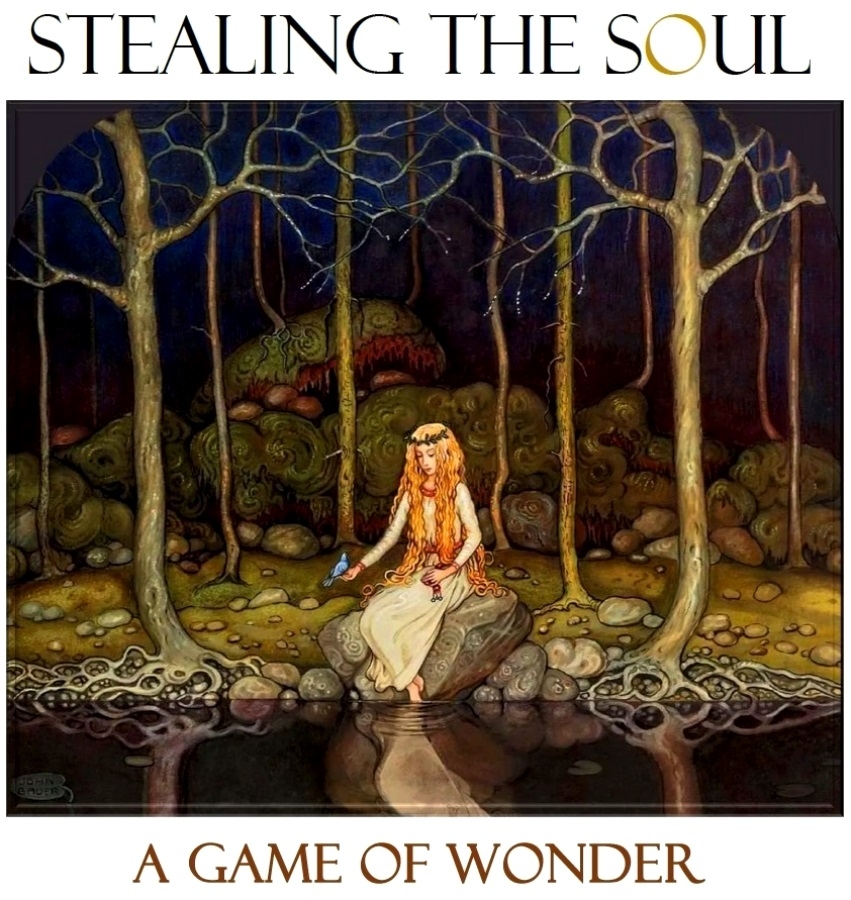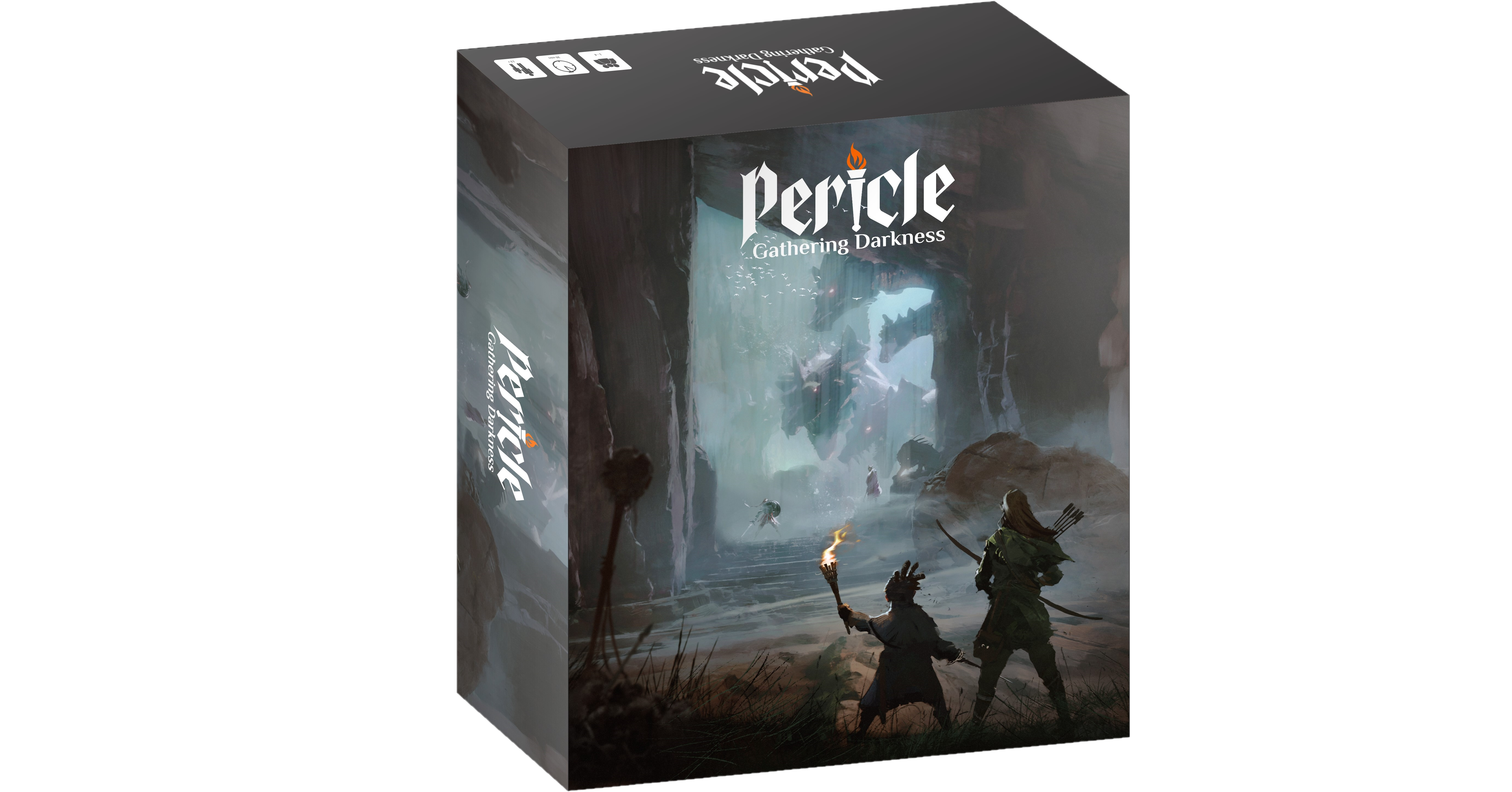Welcome to the Pen & Die Pirate Borg Review! Written by Luke Stratton aka Limithron, Pirate Borg strives to bring the dark, desolate flavor and table utility of Mörk Borg to the Dark Caribbean. Obviously, pirates steal the show in this one rather than your run-of-the-mill scumbags. Luke has tweaked some of the tenets of the Mörk Borg rule set, but it has largely been unchanged. The addition of naval combat rules, the expansion of firearms, and the numerous tables and generators included all enhance the rule set. The setting works hard to create a desolate alternate history of the Caribbean and, for the most part, succeeds but brings a less jarring and jagged style than its fantasy counterpart.
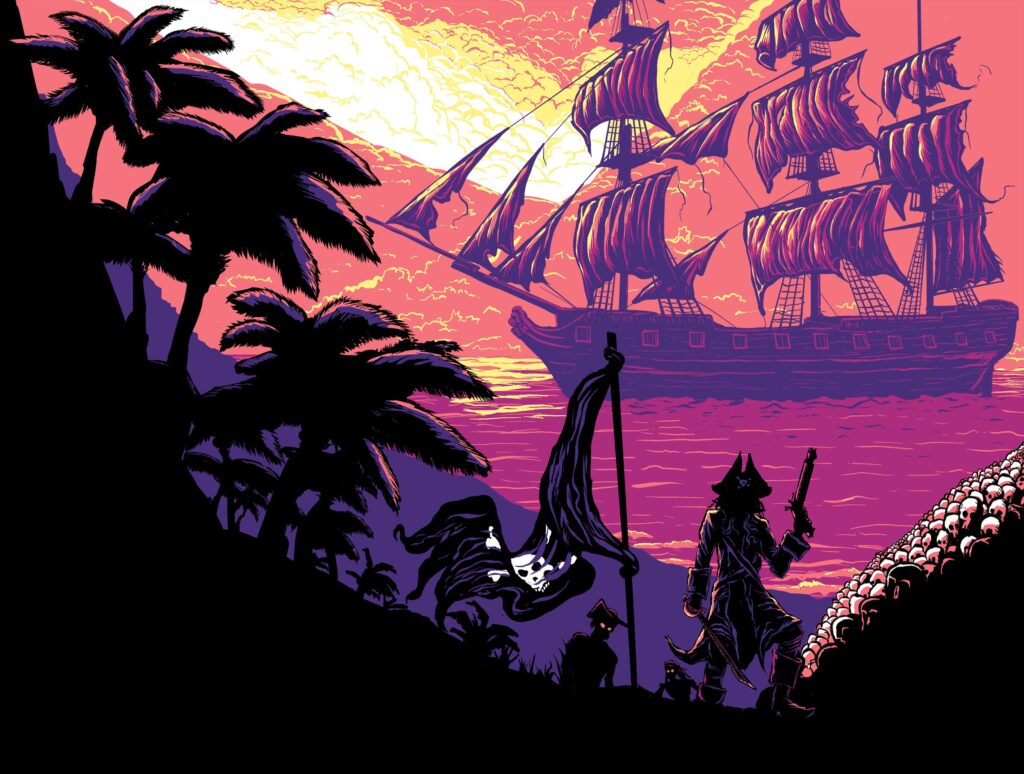
The System
Pirate Borg utilizes an OSR style system for the fantasy pirate genre. Characters have five stats, all rolled with 3d6 straight down the line. Players should not expect to be powerhouses in Pirate Borg. Although, a character doesn’t have to be a fantasy super hero in order to accomplish their goals. Rituals, artifacts, and good planning all allow players to push their scurvy dogs out of the gutter. They may be likely to return there, but there’s plenty of adventure in the meantime. Attacks, checks, and saves utilize a d20 roll seeking to meet or beat a target number. The basic system is simple, quick, and easy to remember.
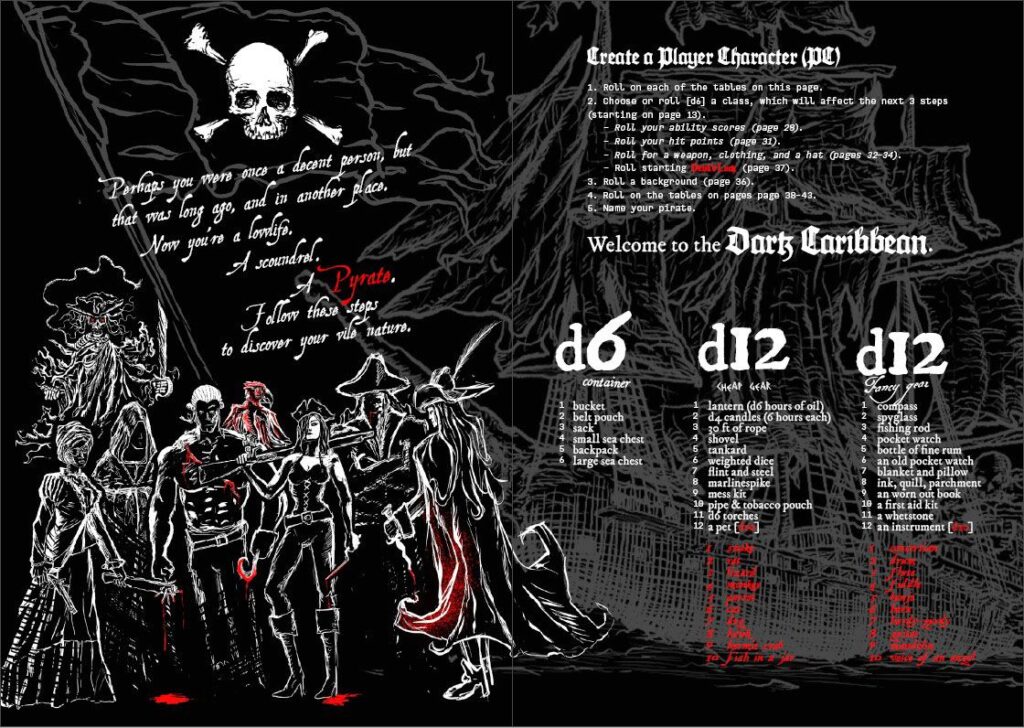
Combat
Borgian combat consists of player facing rolls. PC’s attack enemies and defend against them. Most enemies require rolls to meet or beat a DR of 12 in order to hit or avoid them. Altogether, the combat speeds along without complicated rules. In fact, the entire rule set of Pirate Borg is summarized in just two pages at the back of the book. The game definitely favors rulings over rules as players will be rolling whatever fits the situation best. Strength powers melee attacks, Presence aims ranged attacks, and Spirit fuels arcane rituals. Agility allows for acrobatic feats while Toughness provides the grit to resist physical damage. Other than that, it will be up to the GM or the solo player to decide what rolls will best fit the action a character is attempting.
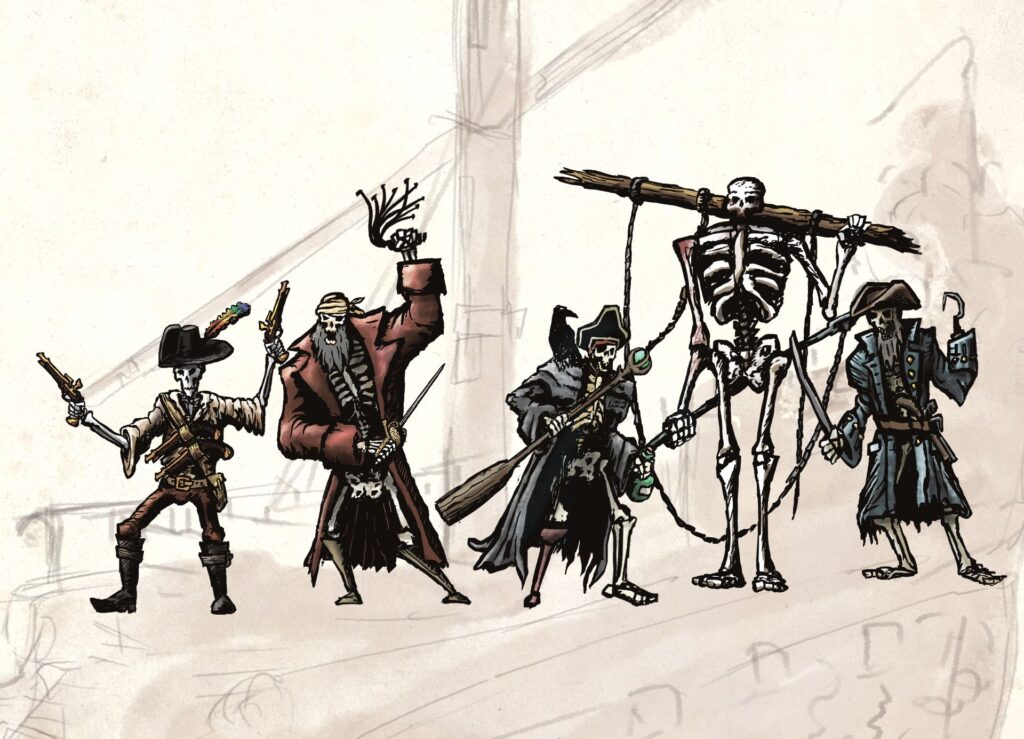
Progress
Between each milestone of an adventure/campaign, characters “Get Better.” However, this can been slightly misleading depending on what you’re expecting. Sure, each character gains some new hit points and will gain a new ability based on their class. The interesting part of Getting Better is that players will roll a d6 and compare it against each of the bonuses to their stats. If they roll under, the stat will go down. If they roll the same, it will remain unchanged and if they roll over then it will go up one. An interesting mechanic like this maintains a certain balance in the party so that they do not tend to get overly powerful but also raises them from lower levels. Since characters have a good chance of starting out with negative modifiers to their abilities, this means that they will certainly get better, but not too much better.
Characters of each class will also receive a new ability or class feature. Players often roll for a random ability but sometimes are able to choose. These abilities match the theme of the classes. There’s also a classless option called the “Landlubber,” that allows for a more freeform style of character progression.
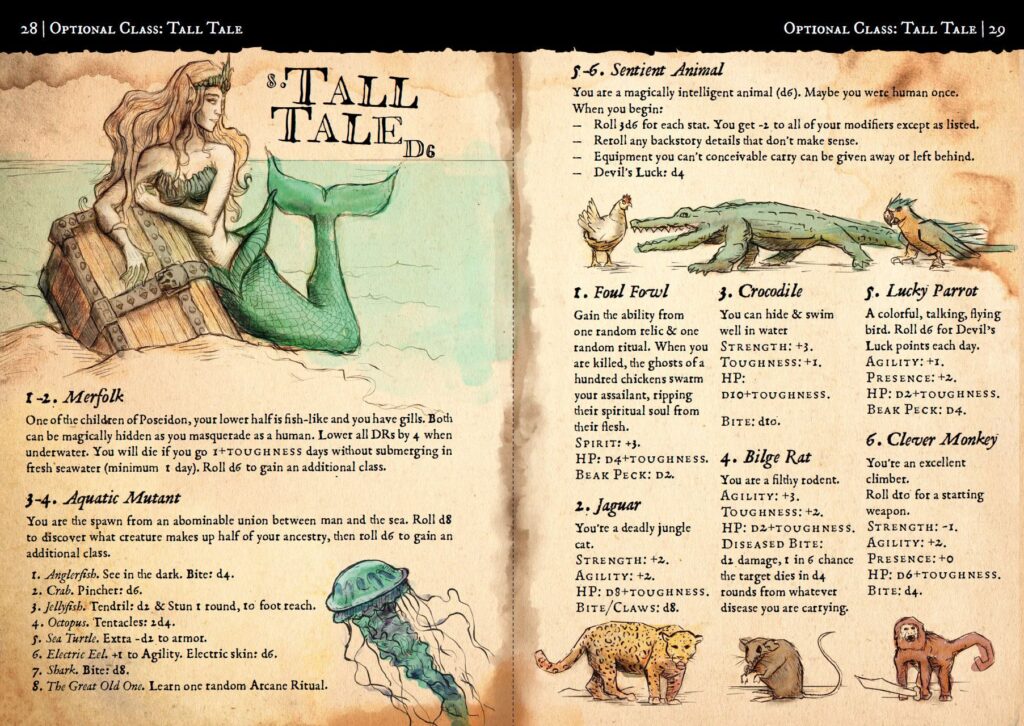
Naval Combat and Ship Rules
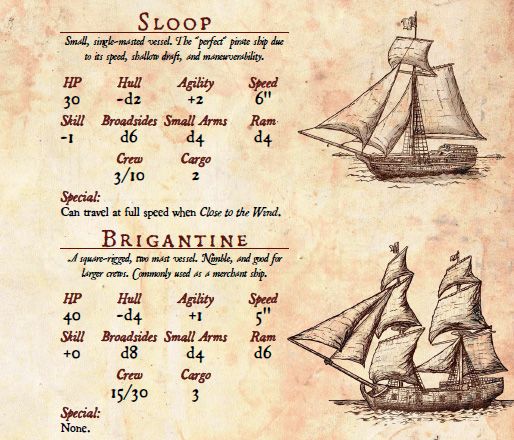
Pirate Borg adds rules for ships and their use in combat that won’t weigh down your game too much. They will slow it down a little until the crew learns their roles and how to handle the ship but that’s to be expected. Coming in around 8 pages, with plenty of images to exemplify subjects, naval combat attains a similar simplicity to the rest of the rule set. Ships will get two crew actions per turn comprising the expected possibilities such as coming about and firing broadsides. PC’s take part in either the crew actions, adding a bonus to the roll, or can act on their own. The section rounds out its offerings with a list of specialty crew that can add bonuses or special actions, as well as tables for flotsam to be found, encounters and events of the open sea.
The Setting
Pirate Borg takes place in the Dark Caribbean by default. Geographically, the Dark Caribbean matches its real world counterpart. However, an undead plague, rampant drug abuse, and the vestiges of colonial greed echo real world history while differentiating the setting. The setting and style are a little bit lighter than the unrelenting brutality of Mörk Borg. However, darkness, danger, and adventure abound on the high seas. Your lily-livered scallywags will die aplenty whether from the various “governments” enacting high seas justice, getting bushwhacked by the countless other privateers, or the terrible beasties that prowl on the edge of this drip of civilization.
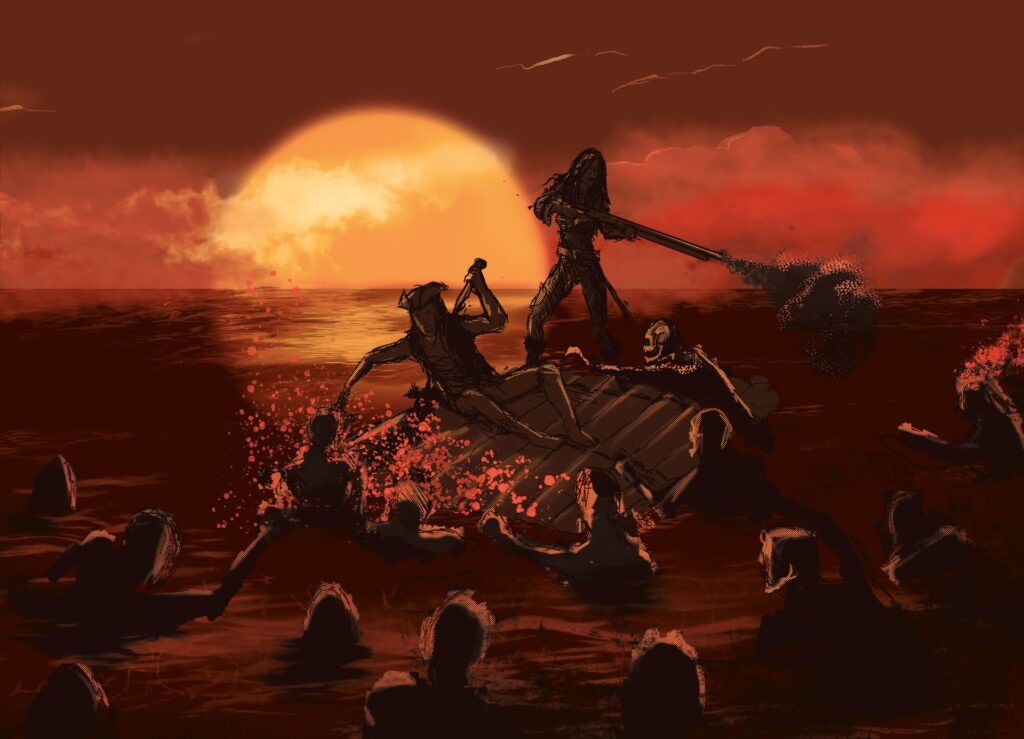
The Tables
Starting at the front end papers, Pirate Borg’s tables bring the random fun. Seriously, the tables are fantastic. Whether you’re a GM, a solo player, or a player making a character; these tables inspire brilliant twists. The Carousing Table takes its place as my favorite. I’ve used it to get my solo game started, not having to wonder what my character does in the first scene. He woke up on the floor of a tavern, haunted by a ghost that he made enemies with, and filthy rich. Useful generators fill your game with things to do such as finding derelict ships or uncharted islands. The treasure map and quest generators inspire new adventures that are varied and will keep a mission based game fresh. Solo players will rarely find their characters at a narrative dead end.
Final Thoughts
Pirate Borg as a standalone game brings further grit and darkness to the fantasy pirate genre. With its OSR style, players will explore the Dark Caribbean without being encumbered by complicated rule sets. Pirate Borg also extends Mörk Borg very effectively. Since the rules are directly compatible, you will be able to take your scumbags out on the high seas to meet their doom. The art of Pirate Borg exemplifies a bit more of a dark comic book style but feature beautiful maps and evocative illustrations.
The system encourages a game styled more around exploration than optimization. No spreadsheets required here. An open imagination and a few dice serve to create the bilge water baptism that your unfortunate sea dogs will endure. The naval combat adds enough detail to get things figured out without becoming an overly complicated freshman math problem.
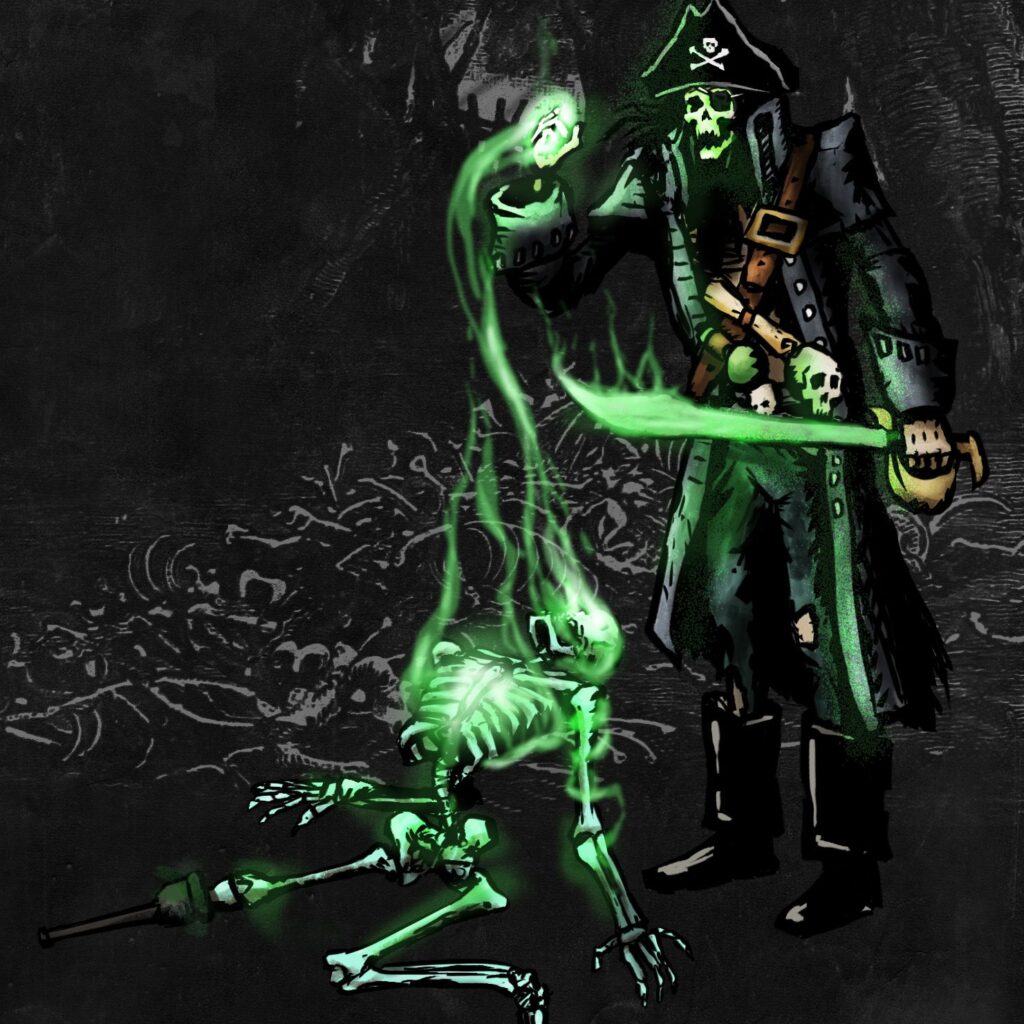
For the solo player, Pirate Borg brings all of the tables that you dreamt of as you tried to run your pirate nightmare. Now you can generate pirates, derelicts, uncharted islands, nautical monsters, treasure maps, and quests on the fly. The simple rules make tracking a character or small party of characters relatively simple. I do suggest a few other supplements to assist your lone excursions:
- Solitary Defilement – Expanded Edition – Mörk Borg’s semi-official solo rules take strong inspiration from Shawn Tomkin’s Ironsworn and allows you to explore, make moves, and generate descriptions and NPC’s on your own. The included Alone in the Crowd supplement contains rules for city crawls. Solitary Defilement will need a touch of adaptation for use with Pirate Borg, but it’s mostly just using different encounter and event tables.
- Solitary Depths – Chaoclypse’s expansion of the Solitary Defilement rules include the addition of a yes/no oracle produces random events, a themed spark table, and dungeon/trap generation rules. This brings a touch of the Mythic Emulator flavor without the complexity. Perfect for exploring island ruins.
- Maze Rats – Ubiquitous to solo players, Maze Rats brings a huge amount of useful table content in a small package. Names, motivations, random spells, and so much more come across pages of d66 tables. I generally suggest this zine style game for almost every solo campaign you might play.
Altogether, I give Pirate Borg a solid 8. Like a fair amount of the games that I like, I could endorse this one for the tables alone. The Borg system doesn’t play as well with others as some OSR’s do. So there would be a bit of conversion required in order to use everything with another system. However, the tables are generally system agnostic. The system’s simplicity lends well to games that seek to be fast, simple, and fun. It’s not quite the black metal makeover for pirates that Mörk Borg was to fantasy, but it still brings a good edge (maybe a bit jagged and rusty). So if you like pirates, I would definitely suggest that you check this one out.
You can add Pirate Borg to your DriveThruRPG library here
You can find the physical book at the Free League Website here
